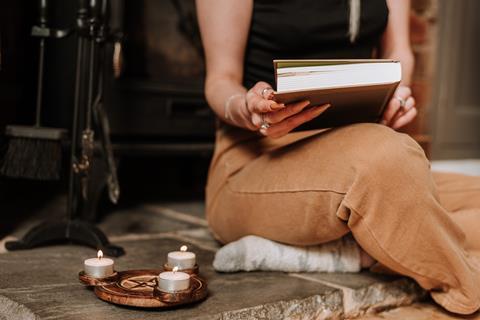Lauren Windle delves into the ‘witch lit’ book craze that promises to empower women but often does so at the expense of Christianity.

My mum, a wonderful God-fearing woman, forbid my sister and I from reading Harry Potter. I was nine years old and my sister was eleven when J K Rowling released the first of her series. It was put straight onto the banned list along with The Worst Witch, The Demon Headmaster and any book in the Goosebumps series. I was gutted.
When I got a bit older, I did read the books and these days my mum has softened to the stories of Hogwarts School of Witchcraft and Wizardry – although she’s still not enamoured by the franchise. It’s for this reason that I didn’t tell her about my latest read; The Witches of Vardø. A highly popular novel released last year, The Witches of Vardø is the latest in a long line of “Witch Lit” books which has seen a steep rise in popularity.
Other books in the genre include; The Manningtree Witches, Her Majesty’s Royal Coven, The Trials of Marjorie Crowe and The Weyward Sisters. I haven’t read these but a look at their synopses indicates that they are very much cut from the same cloth – women reclaiming power stripped from them by men in authority.
The bad guys – the jailers, judges and interrogators are all “Christian”.
In The Witches of Vardø is set in Denmark in the 1600s and follows the plight of a woman falsely accused of witchcraft by the wife of the man she was sleeping with. She was locked away and tortured for a confession despite having no knowledge of the supernatural beyond what she had been told in church. The bad guys – the jailers, judges and interrogators are all “Christian” in this book, with a particularly nasty vicar who branded one woman a witch for encouraging others to dance at a village party.
The overriding theme in the story is not the glorification of witchcraft, but the injustice women were subjected to. Despite the accused not being guilty, she and other women are pushed to actual witchcraft in order to attempt her rescue. A move which is celebrated in the novel as giving control back to the women and fighting the oppression and abuse of the wealthy men.
The book is compelling and exquisitely well written, and if I didn’t believe in Jesus, I would buy and read more.
The book is compelling and exquisitely well written, and if I didn’t believe in Jesus, I would buy and read more. I would find it enthralling – a new creative expression for feminism. But I’m sad that this is how empowerment is being packaged. I’m sad that a story of liberation is being told through the lens of the occult. That the devil is painted as a helpful solace from the evil “Christian” captors. I’m sad that in the book one enslaved character breaks free in her dream and joins a party where she dances to a song played by the devil on his red fiddle and says: “How could he be evil when he made mw feel so good?” I’m sad because the behaviour of the “Christians” in the “name of Jesus” is so inhumane and horrific. I’m sad because, despite it being marketed as fiction, people will be softened to the idea that this is the true dynamic – when I know that to be far from the case.
I would love the world to know how Jesus would have actually treated that woman who was caught in adultery.
Christians have done some terrible things. No Christian in their right mind can deny that many a sin has been committed by deeply damaged people claiming it was “in the name of Christ”. But I would love the world to know how Jesus would have actually treated that woman who was caught in adultery. Not by condemning her, accusing her of more crimes and eventually killing her in an agonising way. But by showing her love, kindness and grace and protecting her from her attackers. I wish there were stories with depictions of genuine Christians, doing their best to live for Christ, showing compassion for those who have lost their way. I wish there were stories that reflected the respect and dignity Jesus showed women. I wish the world saw that true faith in Jesus sets the captives free, rather than locking them away in the “witch’s hole”. I wish that, rather than being associated with abuse of power and exploitation, Jesus’ name would only ever be associated with the full liberation he died to bring each of us.




































1 Reader's comment